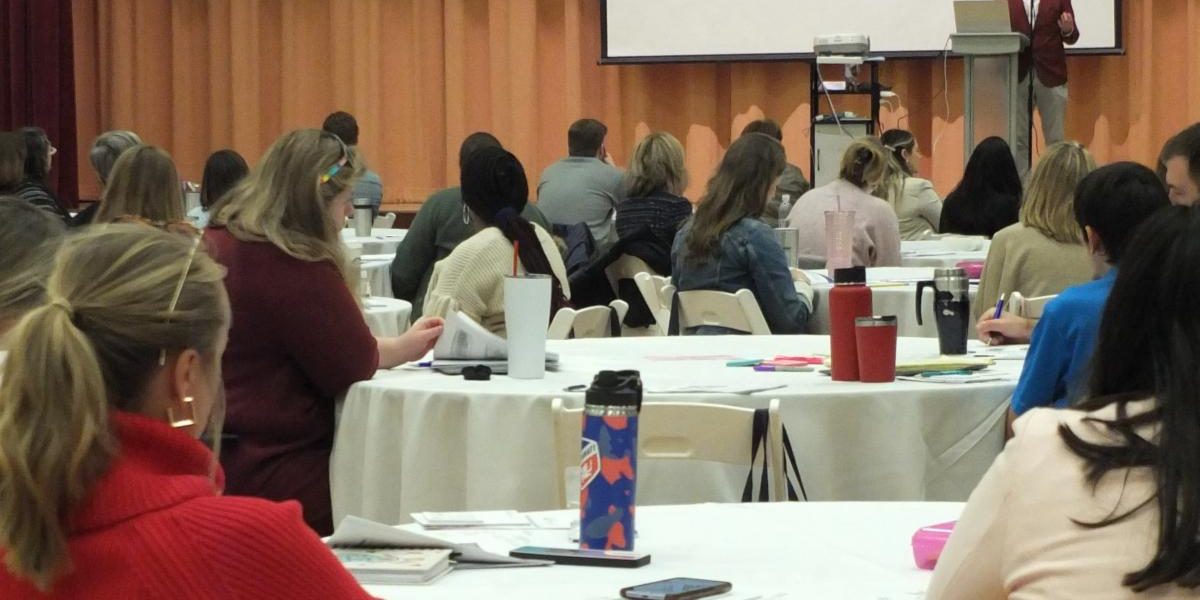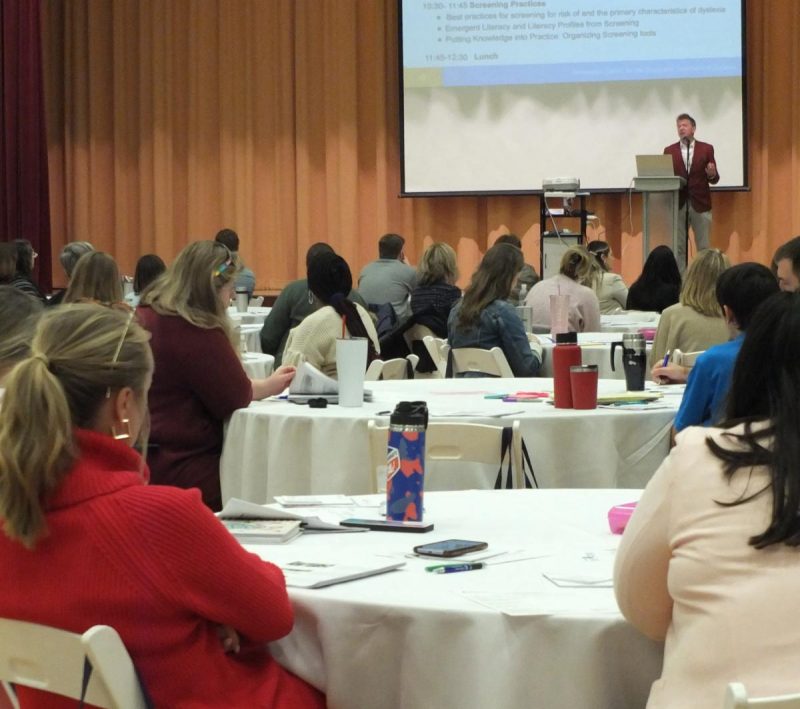
Give Better Directions, Get Better Results at Home
February 17, 2023
Gain Ground this Summer
March 8, 2023
Educators from across the region recently joined Springer faculty and staff for a full day of learning with dyslexia expert Dr. Tim Odegard.
We're ALL working hard to equip every child to read!
Experts in Dyslexia refer to this reading challenge as the most common condition and, fortunately, the best-understood of Learning Disabilities.
If you are the parent of a child who is struggling to acquire reading and spelling skills you may be wondering, “Where are these professionals who understand Dyslexia?”
At Springer School and Center, we were recently privileged to host Dr. Tim Odegard from The Center for the Study and Treatment of Dyslexia at Middle Tennessee State University at a professional development program for educators. Dr. Odegard is one of the premier dyslexia experts in the U.S. and offers several important insights. Dr. Odegard emphasized that dyslexia has a genetic component, but the environment is also a factor. Some students received inadequate instruction in reading during the early grades.
In fact, the United States is in the middle of a reading crisis.
- Less than 40% of 4th and 8th graders read at the “proficient” level or above according to scores on the National Assessment of Educational Progress.
- Scores in 2022 were comparable to those from 1992.
- Ohio, Kentucky and Indiana saw a decline in reading achievement for both 4th and 8th grades.
Hopefully, Ohio’s Dyslexia Law will improve the quality of instruction in Reading and Writing for all students.
Dr. Odegard reiterated that Dyslexia is a problem involving the reading (decoding) of individual words and the spelling (encoding) of individual words. These issues can be prevented using Structured Literacy to instruct decoding and encoding in grades K through 2.
When a child is struggling with the application of the sound/symbol code in reading words and spelling, other factors must also be considered. There is usually not just one reason why a student is having difficulty in learning the code.
ADHD may be a factor. According to Dr. Sally Shaywitz (author of Overcoming Dyslexia: A Guide for Parents), even mild attention problems can impact a child’s ability to efficiently acquire the sound/symbol code. Dr. Odegard reported that a student with dyslexia is 4 times more likely to present with ADHD then a typical reader. When a child is not engaged during a lesson, learning will be a slow process.

Want to learn more?
Access Ohio Department of Education Literacy Academy lectures with PowerPoint slides at education.ohio.gov/literacyacademy.
The Center for the Study and Treatment of Dyslexia at Middle Tennessee State University www.mtsu.edu/dyslexia is another source for information.
The book "Overcoming Dyslexia: A Guide for Parents" 2nd edition by Dr. Sally Shaywitz will be a good resource as your student progresses through school.
Adventures in Summer Learning at Springer offers The Wilson Reading System®, recognized by the International Dyslexia Association as meeting the requirements for a Structured Literacy program based on the Science of Reading.
Blogger Mary Ann Mulcahey, PhD, shares her expertise in assessment and diagnosis of learning disabilities and ADHD, and the social/emotional adjustment to those issues. If you have questions, please contact Mary Ann at .



